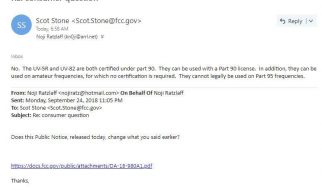 Photo by Andrii Podilnyk on Unsplash
Photo by Andrii Podilnyk on Unsplash
For the most part, English can be spoken and written without references gender, although there are cases where it sounds stiff. ?Spouse? can replace ?husband? and ?wife?; ?sibling? can replace ?brother? and ?sister?.
There are a few problematic pairings, though. Among the most common of these are niece/nephew, aunt/uncle, and sir/ma?am. For niece/nephew, ?nibling? is emerging as a popular neologism. In this essay, I?ll explore aunt/uncle.
An emerging term is ?auncle?, but I?m not fond of that. In some dialects, that ought to be homophonous with ?ankle?; in others, it sounds too much like ?uncle?. ?Pibling? has also been offered, but with ?sibling? and ?nibling?, that feels like too much bling on the family tree for my taste.
If we look at other historic pairings, like actor/actress, widow/widower, and man/woman, it is often the case that one (usually the female form; ?widower? is a notable exception) is an affixed form of the other. In those cases, there?s an argument to be made for using the non-affixed form for the gender neutral? although there?s also an argument made against doing that. That?s for another article.
That?s not the case for most relation terms, though. ?Husband? is etymologically gender neutral (literally, ?house dweller?), but ?wife? is unrelated, being the Old English word for ?woman? (?wif-man?, female person). ?Brother?, ?sister?, ?father?, and ?mother? can each be traced all the way back to Proto-Indo-Euroean (PIE) as distinct words.
?Aunt? and ?uncle?, despite the superficial similarity, are likewise unrelated etymologically. More confusingly, they come to us from Latin, which distinguished four relations: Mom?s brother (avunculus), mom?s sister (matertera), dad?s brother (patruus), and dad?s sister (amita). ?Avunculus? became ?uncle? and ?amita? ?aunt? over time.
?Niece? and ?nephew?, for their part, are related, ultimately deriving from Latin ?nepos?, meaning ?nephew? or ?grandson? and also giving us ?nepotism?. ?Neptis? was the feminine form. Meaning, if we wanted to take the model of using the default as the generic, given that masculine was the default in Latin, we could use some form of ?nepos? if we wanted to. This is particularly defensible since ?nepotism? is gender neutral, even if it references family in general and not just nieces and nephews.
Given the inertia of ?nibling?, though, I?m fine with continuing to use that.
To the matter at hand, there?s no similar argument to made for a ?default? based on Latin roots. The four words are unrelated, and generally support the PIE pattern, which in Latin appears as /p?t*/ for male ancestors and /m?t*/ for female ancestors: Only ?avunculus? violates this pattern.
?Parent? comes to us from Latin?s ?parentum?, from the verb ?parire?, ?to bring forth, produce?. So that?s really not much help. ?Sibling?, meanwhile, is the diminutive of ?sib?, a Germanic word meaning ?family, relations, kin?.
Point being: Whatever gender neutral word we use for aunt/uncle pretty much has to be a neologism. We can certainly be logical about it (as I?m trying to do here), or just go with what feels right, but either way, there?s no historical basis in saying that some ancestor of English had such a term: Old English, Latin, Greek, German, Irish Gaelic, and French all seem to lack a single term meaning ?the sibling of one?s parents?.
On the model of ?pibling?, I think ?parsib? gets at the same concept better, being short for ?parent?s sibling?. A Google search, sadly, doesn?t return any references to ?parsib? in this sense, at least not on the first two pages.
Given the inertia of ?auncle?, that may be just as good as any, but I do still have my misgivings. Language has a way of sorting these things out eventually. If people want to start using ?parsib?, though, I?m good with that.


